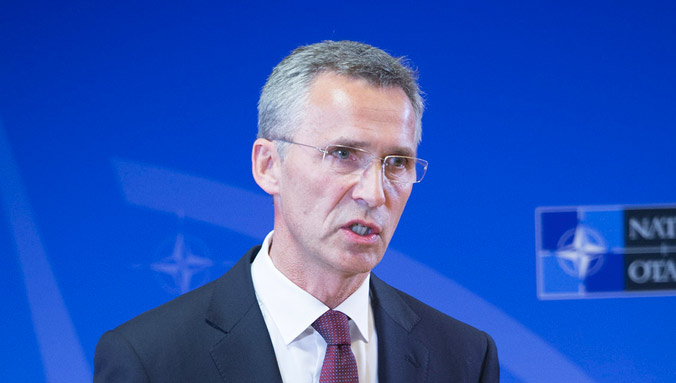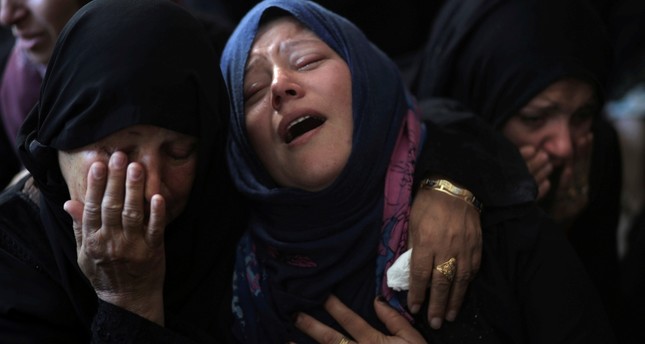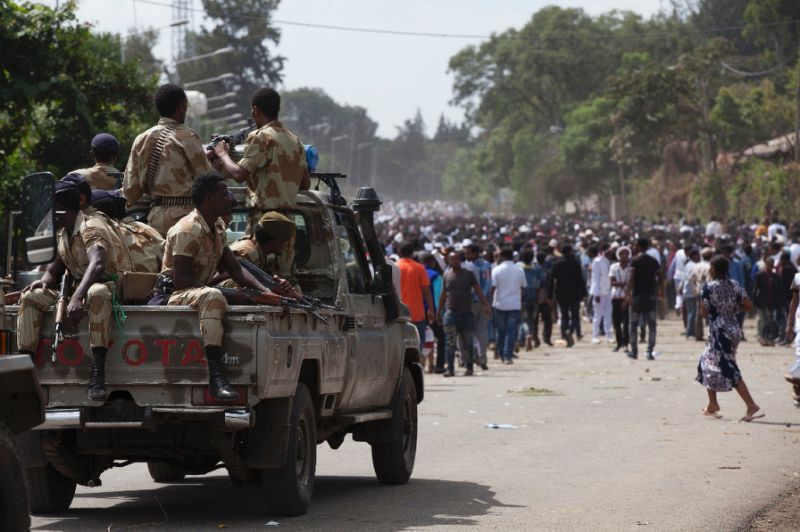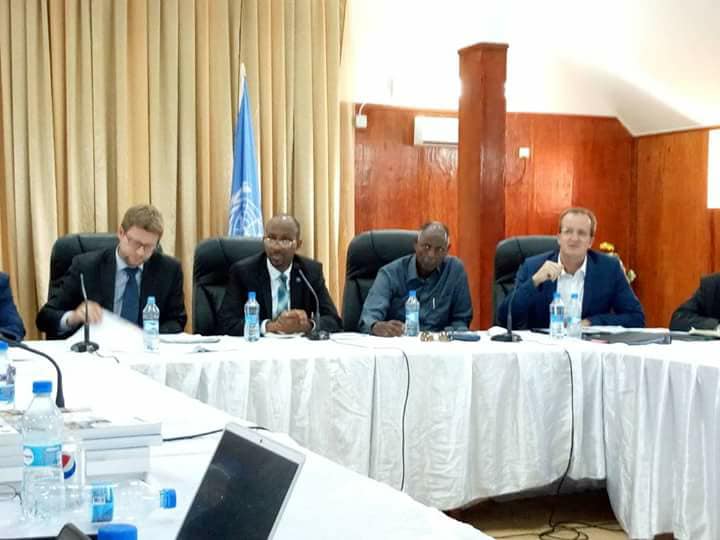NATO Secretary-General Jens Stoltenberg said Thursday the number of migrants crossing the Aegean Sea into Europe is “significantly down,” one day after news emerged that as many as 500 of them may have drowned last week in the sea between Libya and Italy.
Stoltenberg, speaking at a joint press news conference with Turkish Foreign Minister Mevlut Cavusoglu in Ankrara, said international coordination had helped push the numbers down, but he urged authorities not to abandon efforts prematurely as human smugglers can easily change routes and tactics.
He said human smugglers were still actively trying to ship migrants across the Aegean Sea into Europe.
U.N. refugee officials said Wednesday that as many as 500 migrants had drowned last week in one incident, which if confirmed, would make it one of the worst tragedies involving refugees and migrants in the past year.
Stoltenberg said, however, that the numbers were “significantly down,” which he added “confirms our collective efforts are making a difference.”
Under a recent EU-Turkey deal, migrants arriving on Greek islands from the Turkish coast from March 20 onwards face deportation back to Turkey unless they successfully apply for asylum in Greece.
The International Organization for Migration says Greece has seen fewer than 70 migrant arrivals a day over the past 10 days, down from a staggering nearly 1,500 of arrivals a day before the deal was struck in March.
Warships from the NATO military alliance began patrolling the Aegean Sea in February to help stop the overwhelming surge of migrants arriving on the shores of Europe.
On Tuesday, a team from the Office of the U.N. High Commissioner for Refugees (UNHCR) spoke with some of the 41 survivors of last week’s alleged accident, who had arrived at Kalamata, a town on Greece’s Peloponnese peninsula, the U.N. agency said in a statement.
“If confirmed, as many as 500 people may have lost their lives when a large ship went down in the Mediterranean Sea at an unknown location between Libya and Italy,” the agency said.
One of the survivors, an Ethiopian man named Mohamed who was traveling with his family, told the International Organization for Migration, or IOM: “I saw my wife and my 2-month-old child die at sea, together with my brother-in-law. . . . The boat was going down . . . down. . . . All the people died in a matter of minutes.”
The survivors “drifted at sea for a few days without food, without anything,” Mohamed said, adding that he thought “I was going to die.” He said the travelers had intended to go to Italy, not Greece.
“The testimonies we gathered are heartbreaking,” IOM Athens Chief of Mission Daniel Esdras said in a statement. “We await further investigations by authorities to better understand what actually happened and find hopefully evidence against criminal smugglers.”
With summer approaching and the seas becoming calmer, this tragedy may be a harbinger of a deeper emerging crisis. So far this year, about 25,000 migrants and refugees have reached the shores of Italy from North Africa, according to Italian authorities. Although those numbers are slightly more than the 24,000 who arrived during the same period last year, the United Nations and other refugee organizations are expecting more people to take rickety boats plying the risky routes across the Mediterranean to Italy.
According to the IOM, this latest tragedy would raise the number of migrants who have perished on the Mediterranean Sea’s central route between North Africa and Europe to nearly 800 this year.
In addition, about 380 migrants reportedly have died in 2016 on the eastern Mediterranean route between Turkey and Greece, and about five migrants on the western route linking Morocco and Spain, the IOM reported. The group’s Missing Migrants project counts about 1,200 migrants killed this year on all Mediterranean routes. Last year, through the entire month of April, the IOM reported that more than 1,730 migrants died or disappeared.
A controversial agreement between the European Union and Turkey has dramatically reduced the number of refugees reaching the Greek islands. Balkan nations are closing their borders as well, preventing travel from Greece to Germany and beyond. That has triggered fears that more refugees and migrants could attempt to enter Europe from Egypt or Libya.
Last year, more than 1 million migrants and refugees crossed the Mediterranean. They were mostly fleeing the wars in Syria, Iraq and Afghanistan, using Turkey as a launching pad to Greece and then deeper into Europe. But the crossing from North Africa to Italy has historically been more perilous than the one from Turkey to Greece.
The survivors in Kalamata included 37 men, three women and a 3-year-old child. They were from Somalia, Ethiopia, Egypt and Sudan. All were rescued by a merchant ship that then took them to Greece.
“The survivors told us that they had been part of a group of between 100 and 200 people who departed last week from a locality near Tobruk in Libya on a 30-meter-long [90-foot] boat,” the UNHCR said.
After sailing for several hours, the smugglers tried to transfer the passengers to a larger ship “carrying hundreds of people in terribly overcrowded conditions,” the U.N. agency said.
“At one point during the transfer, the larger boat capsized and sank,” it added.
The 41 survivors included people who had not yet boarded the bigger ship and some who managed to swim back to the smaller boat, the UNHCR said.
The survivors then drifted at sea for about three days before they were rescued by the merchant ship on Saturday.
The survivors are being housed by local authorities at a stadium in Kalamata.
Almost exactly a year ago, as many as 700 migrants and refugees were believed to have died when their boat capsized north of Libya. It was the deadliest known sea disaster involving people crossing the Mediterranean in efforts to escape conflict or poverty.
On Wednesday, the UNHCR again stressed its call for more “regular pathways” to Europe for refugees and asylum seekers, including “resettlement and humanitarian admission programs, family reunification, private sponsorship and student and work visas for refugees.”
“These will all serve to reduce the demand for people smuggling and dangerous irregular sea journeys,” the agency said.









